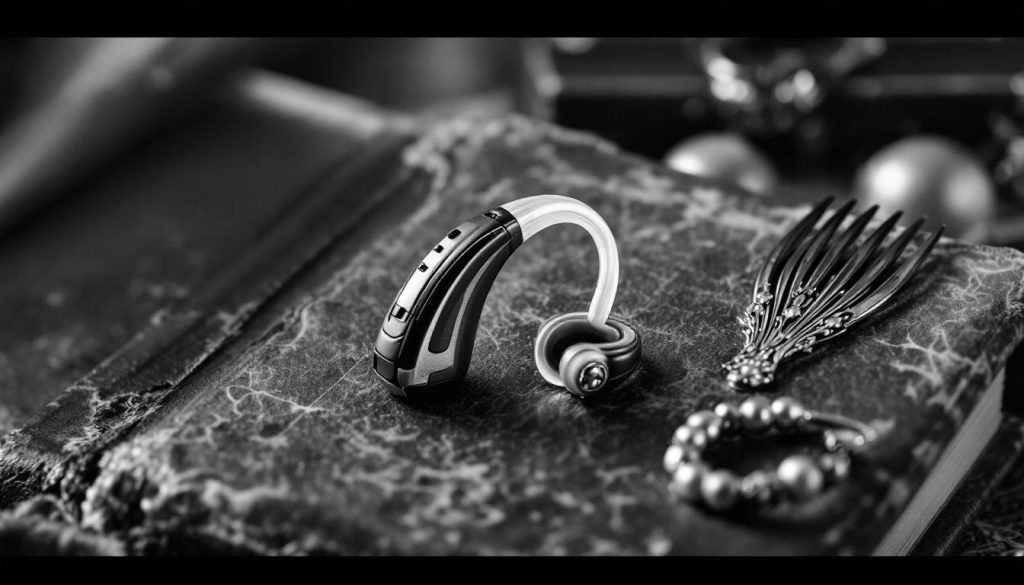As we navigate the evolving landscape of ageing and self-care, the inevitability of hearing loss emerges as a profound challenge that even wealth and cosmetic interventions cannot fully address. At 69, Kris Jenner exemplifies the paradox of modern ageing: while she enjoys the apparent benefits of aesthetic enhancement, a substantial 22 percent of people in her age group face difficulty hearing. This issue becomes more pronounced as she approaches 75, entering an age bracket where hearing loss sharply rises to 55 percent.
The surge in anti-ageing and augmentation techniques—from hair transplants to facelifts—contrasts starkly with the conspicuous nature of hearing aids, which remain a visible marker of ageing. Unlike subtler cosmetic devices, hearing aids can resemble “a garden slug trailing a line of slime,” as one essayist described, highlighting the persistent stigma and self-consciousness surrounding their use. Despite advances, no surgical alternatives have yet offered a truly invisible solution. This physical identifier of ageing presents users—especially those in the public eye—with a dilemma: embrace a hearing aid at the risk of social stigma or forgo it and face potential cognitive decline, as untreated hearing loss is linked to elevated dementia risk.
Statistics from the National Institute on Deafness and Other Communication Disorders underline how widespread hearing loss is among older adults. Approximately 22 percent of people aged 69 experience some hearing difficulty, with data from the Centers for Disease Control and Prevention (CDC) corroborating that 26.8 percent of adults aged 65 and over struggle with hearing. Moreover, severe hearing loss, defined as having “a lot of difficulty” or complete deafness even with a hearing aid, affects 4.1 percent in this older demographic, reinforcing the seriousness of the condition.
This growing prevalence is also gendered. The CDC highlights that among adults aged 65 and older, about 30.9 percent of men and 23.5 percent of women report some hearing difficulty, while more severe challenges affect 5.0 percent of men and 3.3 percent of women. This suggests that while hearing loss is common across genders, men tend to report higher rates of difficulty.
The social ramifications add another layer of complexity, particularly for women who operate under a harsher beauty and credibility scrutiny. While cosmetic procedures remain overwhelmingly more popular among women—accounting for over 90 percent of the 28 million minimally invasive and 1.5 million surgical procedures performed annually—hearing aids do not enjoy similar social acceptance. Vanity and denial keep fewer than a third of those needing hearing aids from wearing them, a reluctance often amplified by deep-seated societal attitudes toward visible signs of ageing. Prominent figures have publicly confronted or concealed age markers like grey hair, underscoring this double standard.
As a result, the fashion and beauty industries may soon play a pivotal role in reshaping perceptions. Innovations such as decorative ear cuffs or jewelled covers designed to disguise hearing aids are anticipated, possibly transforming these devices into statement accessories. Hairstyles may also evolve to accommodate or conceal hearing aids, favouring cuts that cover the ear over those that expose it.
Some individuals, by contrast, advocate for embracing visible hearing aids openly, as a form of exposure therapy against stigma. This approach mirrors the gradual societal acceptance of glasses and comfortable footwear among older public figures, which were once sources of embarrassment but are now normalized necessities.
Ultimately, hearing loss stands as a great equalizer in the ageing process, transcending wealth and cosmetic prowess. As people like the essayist herself and public icons such as Kris Jenner navigate this reality, the need for cultural shifts around ageing and assistive devices becomes more pressing. Embracing hearing aids with pride, rather than shame, could mark an important step in fostering dignity and accessibility for ageing populations everywhere.
📌 Reference Map:
- Paragraph 1 – [1], [2]
- Paragraph 2 – [1]
- Paragraph 3 – [2], [3]
- Paragraph 4 – [3], [6], [7]
- Paragraph 5 – [1]
- Paragraph 6 – [1]
- Paragraph 7 – [1], [2], [3]
Source: Noah Wire Services

